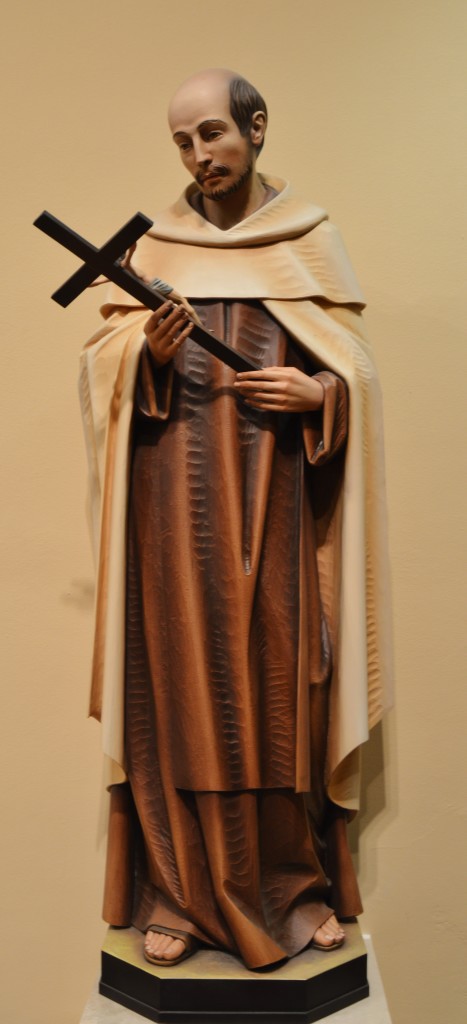We may find these kinds of passages far beyond our strength, too elevated for our present state of spiritual aspiration. But who can say where God will lead a soul in the course of a life in which prayer has been a consistent need? The desire of a soul to love God and consider everything else of little or no importance compared to him perhaps does not occur until a late stage in many lives. Yet this desire leads to an increasing loss of self-interested pursuit, as the Gospel demands. Love for God has always the effect of detaching the soul from excessive interest in itself and from the passing things that do not remain after this life. The soul, for instance, no longer seeks to shine outwardly for others or to draw the attention of interested eyes. Only God matters; vain pursuit seems frivolous and without value. There is no gain for the soul but in drawing closer to him and in pleasing him. Saint John of the Cross describes this exclusive love for God in the following words that can serve as almost a testimony of contemplative endeavor. But this is also the program for a saintly life: “The one who walks in the love of God seeks neither gain nor reward, but seeks only to lose with the will all things and self for God; and this loss the lover judges to be a gain” (SC 29.11).
************
Our Lord himself and our knowledge of him are described continually by Saint John of the Cross in such terms. We never reach the end point in our knowledge of Jesus. The Gospel offers clear historical testimony of his words and actions. Yet the truth of who he is as our God extends beyond our possession and grasp for a lifetime. The quest is endless because love never arrives at a conclusive knowledge of the Beloved who died on a cross in Jerusalem for us. The only entryway into this greater knowing is to be wounded with love for him. We may have to suffer a perpetual wounding of the soul to open a door repeatedly into the unlimited treasures concealed in the Heart of our Lord. The image used by Saint John of the Cross in the following passage captures both the incomplete encounter felt by a soul and the wounding of the soul that thereby ensues. It can serve as a fitting conclusion to this chapter. As he writes, most impressively:
There is much to fathom in Christ, for he is like an abundant mine with many recesses of treasures, so that however deep individuals may go they never reach the end or bottom, but rather in every recess find new veins with new riches everywhere. On this account St. Paul said of Christ: In Christ dwell hidden all treasures and wisdom [Col. 2:3]. The soul cannot enter these caverns or reach these treasures if, as we said, she does not first pass over to the divine wisdom through the straits of exterior and interior suffering. For one cannot reach in this life what is attainable of these mysteries of Christ without having suffered much and without having received numerous intellectual and sensible favors from God, and without having under- gone much spiritual activity; for all these favors are inferior to the wisdom of the mysteries of Christ in that they serve as preparations for coming to this wisdom. (SC 37.4)
‘St John of the Cross: Master of Contemplation’ written by Father Donald Haggerty









Recent Comments